Atul Singh: Welcome to FO° Talks. With me is Casey Given, the executive director of Young Voices. He is an interesting chap who has started organizations and, indeed, is now running a platform that gives voice to young intellectuals who are finding their voice. Casey, welcome and thank you for your time.
Casey Given: Thanks. It’s so great to be here.
Atul Singh: Brilliant. So Casey, let’s talk about civil liberties and free speech. From your background, it seems you’ve always cared about these issues. What do you really mean by civil liberties and free speech?
Casey Given: Ooh, good question. Well, I think I would just go with the definition of at least my priors. I am what would be called a classical liberal or libertarian. So I’m really interested in free speech and civil liberties, really more in the sense of the individual liberty standpoint.
Atul Singh: Are you a John Stuart Mill sort of liberal?
Casey Given: Yes, exactly. So I would say that. But of course, as an American, the Bill of Rights, I think, is really the type of liberties that I seek to preserve and defend, especially through my organization as a vehicle.
Atul Singh: I see. And so, the Bill of Rights. So give us a little more meat, then. What do you see as the role of the state? Should the role of the state be minimal? Should the role of the state be limited to foreign policy and defense and perhaps running the Federal Reserve — or maybe not? Or should it extend to other areas, such as regulating the environment or providing welfare to those who have been left behind?
Casey Given: Yes, all good questions. We were just talking before the stream about my undergrad days at UC Berkeley, and I used to love getting into these size-of-the-state articles—
Atul Singh: Where I taught, by the way. You didn’t take my class. (Both laugh)
Casey Given: And we were both knocking it! I wish I had taken your class. But I used to get into arguments all the time with my fellow students about minarchy versus anarchy. And to some degree, as I get older, I’m less interested in that. I like to describe myself as a directional libertarian, in the sense that I think the size of the state should be directionally smaller. But that’s not—
Atul Singh: You’re not an absolutist anymore. Let’s say in the UK context, you’re not someone who’ll say, “Let’s get rid of the National Health Service.”
Casey Given: Exactly, yes, that’s a great example. Or in the American context, of course, things like Social Security, or — you specifically mentioned welfare. I think that overnight abolition is a ridiculous concept. But I think that there’s plenty of halfway measures to reform these programs that desperately need it.
DOGE and the case against tariffs
Atul Singh: Yeah. So I read your column in The Hill, and you had predicted that the Department of Government Efficiency (DOGE) would find it hard going in Washington. And the budget seems to have proved your point. And indeed, Elon Musk has talked about the big and beautiful bill and said it can either be big or beautiful — it can’t be both. Are you dissatisfied with the budget, which is going to increase trillions of dollars of government debt and boost the deficit?
Casey Given: Yes, absolutely I’m dissatisfied with it. I was a cautious optimist for Elon Musk’s Department of Government Efficiency. And now that he’s leaving, I still think it was a good faith effort. But the thing is, in many ways, he was getting all of the blame for the dysfunction, when I think there should be more blame exactly on Congress, which is an actual branch of government that has basically absolved itself of any responsibility and has given into the big government, wasteful spending, as seen in the budget. So I think it’s very disappointing. I think that conservatives in Congress aren’t actually being conservative. And that’s why I still firmly identify as a libertarian rather than a conservative or Republican, is that I think that we need to actually activate the branches and have smart governance.
Atul Singh: So let’s talk about what you would like to see. Would you like to see a cutting down of regulation for small business? Would you like to see a cutting down of, say, defense spending, Medicare, Medicaid or Social Security? Would you like to see an increase in taxes to balance the budget a little bit? What is it that you would like to see? And since you’ve said you’re a libertarian, where do you stand on tariffs?
Casey Given: Yes. Well, first, to return to DOGE, I think that a lot of the cuts that they made were directionally sensible. There’s just so much waste when it comes to the feeding off of the trough of pork-barrel spending when it comes to NGOs, where their mission is not exactly clear. Of course, that is a drop in the bucket, and I absolutely understand the points that critics have of DOGE — that the real wasteful spending, or at least statistically, the biggest areas of the federal budget are, of course, entitlements: Social Security, Medicare and defense spending on the discretionary side.
So to really tackle those, I would say that with defense spending, obviously, there needs to be a lot more auditing of the Department of Defense. I mean, it seems like regularly that they lose billions of dollars that they can’t account for, which is just completely unacceptable. And in terms of Medicare, with Social Security, I think that we need to raise the retirement age for the future. When it was created by FDR, 65 was well above the average lifespan. Now people are, fortunately, living so much longer. So I think it’s fair to raise the age of payout.
And Medicaid — I think that it’s really disappointing. I think that Elon, in a brief tweet, talked about a lot of fraud. I suspect that’s probably the biggest program where there’s a lot of wasteful spending, of people claiming to be disabled, etc., who actually aren’t. So I think there are ways to meaningfully save the budget. But again, as a directional libertarian, I think it’s not throw the baby out with the bathwater. I think that there needs to be halfway measures and more rational reform slowly.
Atul Singh: I mean, you’re making the case for a responsible right, really. What you’re doing is saying: Let us have sensible policies. And so talking about sensible policies, let me take you back to tariffs. Most people who are libertarians — indeed, going back to the original classical liberals — they stood for free trade. The Economist magazine began on the principle of free trade. And where do you stand on that? Because we are living in a very different era now, with industrial policy under Joe Biden and, before that, tariffs as an instrument of trade policy under Donald Trump 1 and Donald Trump 2.0.
Casey Given: Yes, this is the area where I would be the most critical of Donald Trump. I think that his tariff policy has been an absolute disaster. I think that it’s really, if anything, so far punishing our closest friends in terms of Canada, the EU, etc. And even if you believe in tariffs — this is something I often tell to my friends who are big Trump supporters — I think the way that he’s going about it is completely irrational, where he changes his mind every 24 hours. It’s like, if you’re going to set a policy, just by pure regime stability, is that markets will adjust if you just put the tax in place.
So I think that tariffs are destructive. I think the whole framing of a tariff deficit is completely twisted and not really what a state should try to pursue. Because, of course, trade is a mutual benefit. It goes back to Economics 101, which I won’t dare even have to bring up in front of an political economy professor, but I think it’s completely silly and destructive what the admin is doing. So I hope they’ll knock it off.
Free speech in Casey’s Berkeley days
Atul Singh: I see. So you have been libertarian, and you went to Berkeley, where you and I both spent time — you as a student, I as faculty — and I found Berkeley very ideological, very to the left. What was it like being a young libertarian in Berkeley — and, of course, even in George Washington University?
Casey Given: Yes, well, I should say also — I should probably reveal my age — that I’m 35. So I graduated in 2012, which I feel that in the scope of my life is not that far away — or doesn’t feel like it — but it really is, I think, a separate era of history, at least in the US. Of course, this was under the Obama years, but also in terms of campus attitudes towards free speech.
Greg Lukianoff and the Foundation for Individual Rights in Education really say that 2014 is when there was a new regime when it came to free speech and the growth of the administrative state in universities, etc., that kicked off the current wokeness age backed by law.
So I would say that I actually really enjoyed my time at UC Berkeley. It was certainly predominantly left when it comes to the average student body. But I would say even at that time, most of the people I encountered were very cordial. We had fun. I ran the college libertarian group, so we had debates with the College Republicans, with the Democrats, etc. It’s a top-tier school, maybe not in the humanities, but at least in STEM I would say—
Atul Singh: Oh, it’s one of the best in the world. I mean, for computer science, for physics, for so many disciplines, it is a school with Nobel Prize winners, cutting-edge research and really clever young people.
Casey Given: Yeah, and so I would say that most students were heads down, wanted to do the homework, and there was just a small faction of ideological, very lefty students that created trouble — which is often the case on college campuses.
Atul Singh: Got it. Now, the reason I asked you was whether your experience led you to run Young Voices, the organization you are supporting. You’re supporting young people of the right who are commenting on politics, policy, civil liberties, and I was wondering if your student experiences were formative or not in working on this?
Casey Given: Oh, absolutely. That is really where I solidified in my mind that I have a knack for leadership. I started the libertarian student group my sophomore year. And I also, in my senior year, became known on campus enough that I became the political columnist for the student newspaper, The Daily Californian, which really, I think, put me on my current trajectory, ultimately leading to my position as CEO of Young Voices. So in many ways, I’m living the fantasy that I had in my undergrad days of pursuing political commentary and running an organization like that full time.
Threading the needle between extremes
Atul Singh: So let me ask you a question: How do you thread the needle between the liberal establishment and the populist right? Because you clearly don’t fall into either camp. You very much, as you’ve said, want to be the responsible right. You are libertarian, but you’re directionally so. You’re not saying, “Let’s slash and burn, let’s throw the baby out with the bathwater.” So you’re in a tricky situation, Casey.
Casey Given: Yes, that is a very good question and one that I’ve thought about a lot. I feel like, in many ways, libertarians, at least of my ilk — I like the “responsible right” moniker, or “classical liberals” is probably what many of my peers call ourselves — really do try to walk a tightrope of not trying to throw out the liberal establishment, as you mentioned, but also not trying to be too radical, especially when it comes to populism or illiberalism or the national conservative economics, as they like to call themselves.
Atul Singh: The Steve Bannon approach that you need tariffs, you need economic nationalism, you need to bring jobs back for the working class, and a combination of immigration controls and tariffs will resuscitate the American working class.
Casey Given: Yes. So here’s how I thread the needle. I want to give both sides their due. I think that the Steve Bannon populist right has hit on something that I think is correct, in the sense that there has been widespread failure of institutions going back for decades now — failure to respond to security challenges, I mean even going back to 9/11, failed wars, the Covid pandemic, the 2008 financial crisis. We are living in an era — even down to everyday living, of crumbling infrastructure — where government institutions are failing, and people are feeling like they’re getting the short end of the stick. And I think that anger is justified in many ways.
However, I think that the way that it has manifested — especially with MAGA, of “we need to tear everything down” or “we need to punish our enemies” — that is ultimately a philosophy of destruction rather than a philosophy of building. And I think it’s very dangerous, again, to throw the baby out with the bathwater of trying to just completely destroy things or really express your anger rather than trying to actually reform.
So, I do respect people on the populist right who are trying to do a little more of the building. And I respect people on the left, too. Like, I’m very encouraged by trends on the left like the “abundance agenda,” who are really looking for more proactive good institution-building that involves markets. And I hope to see more of that on both sides — that solution-oriented, not just culture wars, destructive anger expressed in that way.
Young Voices’s funding, training and mission
Atul Singh: Alright, fair enough. Let me ask you a more pointed question: Who funds Young Voices, and how do you ensure editorial independence? We are a nonprofit, too, and we’ve had to fight really hard — and ours is a crowdsourced approach. So that’s why I ask this question, having gone through this myself.
Casey Given: Absolutely, that’s a question I get often. Young Voices — we are completely privately funded, 100%, from individuals, foundations and corporations. These are a mix of people who give anywhere from $1 to $100,000 or so. We have over 50 donors who give us above $5,000, I believe. So it’s a good mixture of people, and I think just having a diverse portfolio of supporters is a great way to keep ourselves independent and not be anyone’s toady, if you will.
But beyond the who question, we also have lots of practices in place. We have a code of ethics that’s on our website that specifically outlines our approach to editorial independence in the fact that no donor can ever influence or edit our drafts. And more so than that, actually, we’ve restricted the editorial independence of our writers as well. We allow our writers to more or less write whatever they like, so long as it is broadly within classical liberal principles. So we really take independence and ethics quite seriously.
Atul Singh: I see. Now, tell me: What exactly do you do in Young Voices, and how do you do it? We have an idea, but I’m very curious. Obviously, you have a number of people from the libertarian school or the classical liberal philosophy whom you’re schooling. How do you find them? What exactly do you do with them? And what is the vision?
Casey Given: Yes. Well, first of all, we’re a program that’s in high demand in the sense that what we do is offer editorial services, media training and placement services at absolutely no cost. That means we edit and pitch op-eds, we schedule radio and TV hits, we get people onto broadcast media, arrange in-person speaking events, etc., at no cost to the participant.
So just through the appeal of that offer, we get over 200 applications every year for our programs, of which we accept about half, or just under half. In terms of where we find our folks, we are trying to get better about actively recruiting because I think we’re more interested at this point in the quality of participants rather than the quantity of applicants.
And we find them from undergraduate groups that are classical liberal, libertarian, conservative groups — sourcing them — as well as probably the biggest area we’ve had success with, which is think tanks, both in DC, where we’re headquartered, but also across the country and in Europe, through networks like the Atlas Network or State Policy Network. We really try to find people who are getting their first roles, looking to build a career in the world of ideas and grow with us in that way.
Classical liberalism outlook: Europe and the US
Atul Singh: So let’s talk about Europe. Since you’ve mentioned Europe, you’re just back from Europe, we have a strong presence in Europe. In fact, part of our editing team is in Europe. Right from the outset, which countries are you focused on, and where are you finding classical liberals of great promise in Europe?
Casey Given: Yeah, so we are in about 20 countries across the continent. Of course, when I say that, I mean we’re working with individual writers in the country. So it’s not super institutional in that sense, but rather individual relationships. We have one employee based in the UK who does all of our editing and pitching across the continent.
But really from there, we’re not trying to put dots on a map, but rather work with people in the think tank and journalism world that we think are aligned with our values and are very excited to develop their careers in media.
Atul Singh: So no relationships with political parties yet in Europe? Not a single political party?
Casey Given: No. As a 501(c)(3), even in the United States, we don’t have any formal relationships with the Republican Party or the Libertarian Party or anything. We work purely with individuals.
Atul Singh: Purely with individuals. I see. The reason I asked is because in Europe, classical liberalism often means something different from what Americans mean. And often, the people you’d call liberals — liberals in Germany, for instance — are extremely free market. And liberals in the US are quite interventionist. Hence the question. And also, the change in the zeitgeist in Europe now is leading to a curious combination of populism, both on the left and the right, and classical liberalism is finding it hard to stay afloat.
Casey Given: Yes, it absolutely is. And I think that’s something that I hope to try to change. (Chuckles)
Atul Singh: I see.
Casey Given: And to answer a question that you didn’t ask, but I do think about this a lot: I do think it comes to that metaphor you used of threading the needle. You really have both sides: one, the left, that has the establishment, the neoliberal order; versus the right, which is increasingly more populist and aiming to destroy that order.
And so I think the middle ground is where classical liberals can really lean into and say that institutions are important. Elites are important — but they need to be held accountable. That’s really where I see at least my version of classical liberalism can do something. But I know that’s a message that is not really satisfying to one side completely.
Atul Singh: So let me ask you — since you have an employee in the UK, and I’m sure you go to the UK — and I, of course, lived and studied in the UK for a while. In fact, I’ve written a book chapter on Brexit, amongst other things, and I follow Britain very closely. Where do you see classical liberalism in the political landscape of Britain today?
Casey Given: Yes. I would say—
Atul Singh: This is the country that gave birth to the idea. It’s the land of John Stuart Mill, who, by the way, worked for the East India Company. And although he was very liberal, he did not advocate freedom for Indians, because he felt they were not in the majority of their faculties. (Laughs)
Casey Given: Wow, yeah. (Laughs)
Atul Singh: No turkey ever votes for Christmas. I suppose he didn’t want to lose his paymaster. (Laughs)
Casey Given: Exactly. He actually did the same for Catholics, too. I’m a Roman Catholic, so I would not, in his world, either have been granted—
Atul Singh: So both of us wouldn’t have had the vote. Women could have the vote, though, if they were Anglican and Protestant. (Both laugh) So he was progressive in many ways—
Casey Given: Exactly.
Atul Singh: But not too progressive. (Laughs)
Casey Given: Yeah. To answer your question, I do go to the UK at least once a year. It seems like at least politically, in the parties, it’s very difficult. I mean, I would say that, of course, historically the Conservatives — the Tories — have been the party that embraced more classical liberal ideas. With the current wipeout they had recently, it seems like their stock is really on the decline.
Atul Singh: Yeah. Rishi Sunak — he did the same degree as me. He did Philosophy, Politics and Economics as well. And he was, I think, two or three years my senior. And shall we say, he was very efficient, very clever, very hardworking, very good at time management. But he has the charisma of a dead mouse (laughs) and the convictions of a middle manager in Goldman Sachs. (Laughs)
Casey Given: Yeah, absolutely.
Atul Singh: That does not fly in electoral politics.
Casey Given: And I actually was in London in February for the ARC Conference, the Alliance of Responsible Citizenship. So I heard there was a lunch with — I always mispronounce her name. Is it Kemi, Kemli?
Atul Singh: Kemi Badenoch.
Casey Given: Kemi, yes. So I heard her give a speech. And it certainly seems like there’s more energy — she seems to at least be an improvement on Rishi. But it seems like all the Brits in the room afterwards were really not very happy with her.
Atul Singh: Well, she is very weak right now and is unlikely to stay in the job for long. So you don’t see very many people in that space. What about the US? What’s your great shining light for the US?
Casey Given: Yes, for the US, I would say that there’s really not too many classical liberal, libertarian voices in government either. I think, of course, the closest we have is like Rand Paul or Thomas Massie or whatnot. So I think it’s a little bleak right now politically. But I think the great thing about the US — the hope — is that we have so many nonprofits like Young Voices, but so many other think tanks like the Cato Institute, Reason magazine, Mercatus Center, the Atlas Network, etc. There are hundreds and hundreds of them that, I think, we have strong civil society NGOs in the US that, hopefully, if we’re doing our job well, the stock of classical liberalism will be on the rise.
Just to return to the UK really quickly, I think that’s the problem, that there’s not as strong of a nonprofit/NGO sphere for classical liberals there. Although I do think the one hope I would see is exactly that conference I just mentioned: ARC, the Alliance of Responsible Citizenship, which was explicitly classical liberal and had over 4,000 attendees. It was at the Expo Center in East London. So I think that there is hope. That would be, hopefully, the long-term hope in the UK — building more of that civil society, nonprofit sphere that will hopefully eventually manifest itself in politics.
And I would say in the US, hopefully — I think the libertarian, classical liberal movement is perhaps a few decades ahead in terms of at least the strength and the quantity. But I absolutely understand the frustration — especially donors might have — that we need to start racking up wins, especially when it comes to the political sphere.
Atul Singh: Excellent, Casey. Thank you very much for your time. We’ll have you back, and we will continue to publish Young Voices that you send our way. Good luck. You have your job cut out.
It is certainly living up to the Chinese proverb — or Chinese curse — “May you live in interesting times.” So you have your work cut out in interesting times.
Casey Given: Thank you so much. I really enjoyed this chat.
Atul Singh: Thank you.
[Lee Thompson-Kolar edited this piece.]
The views expressed in this article/video are the author’s own and do not necessarily reflect Fair Observer’s editorial policy.





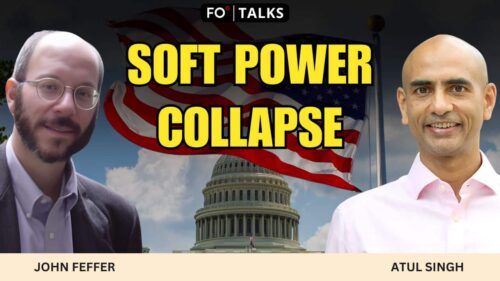
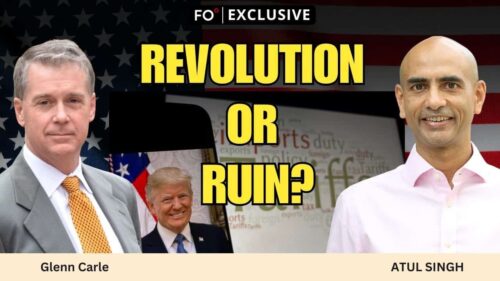
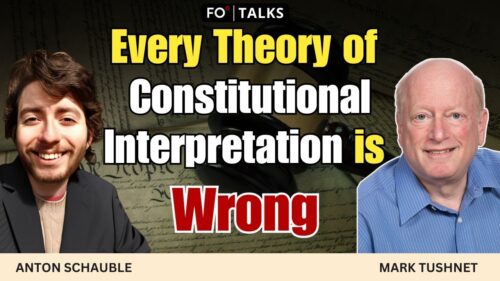
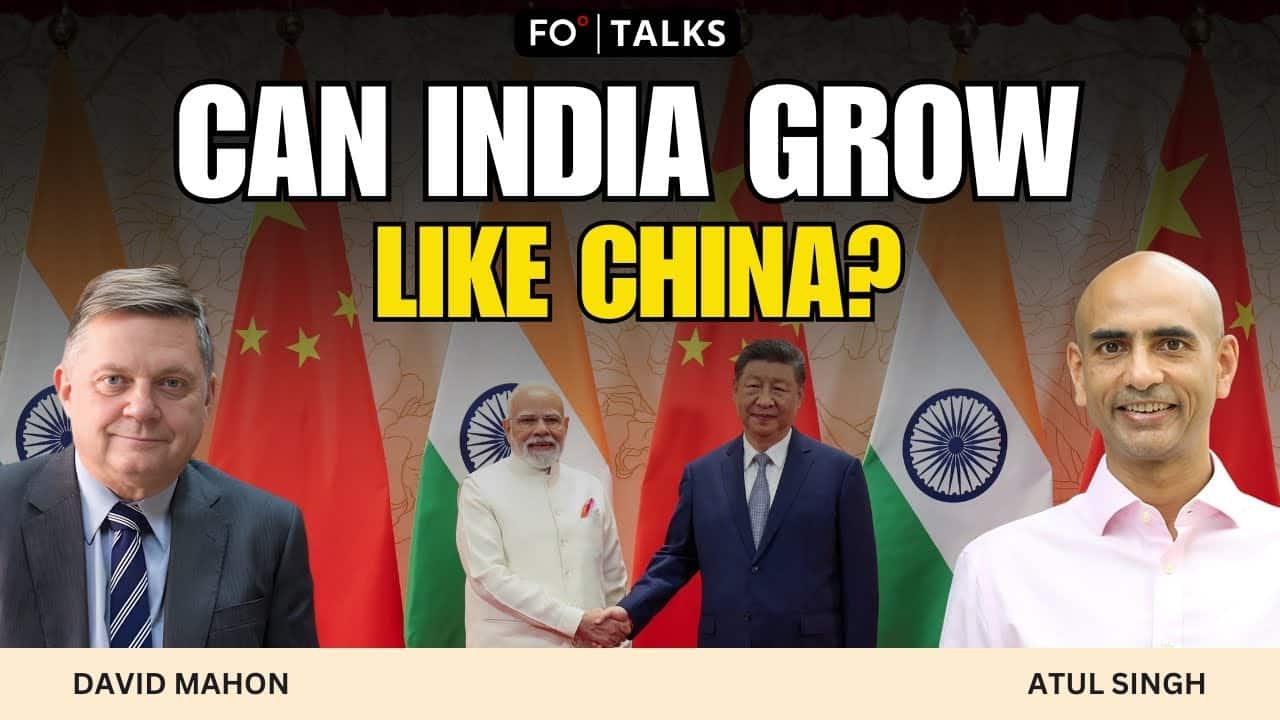

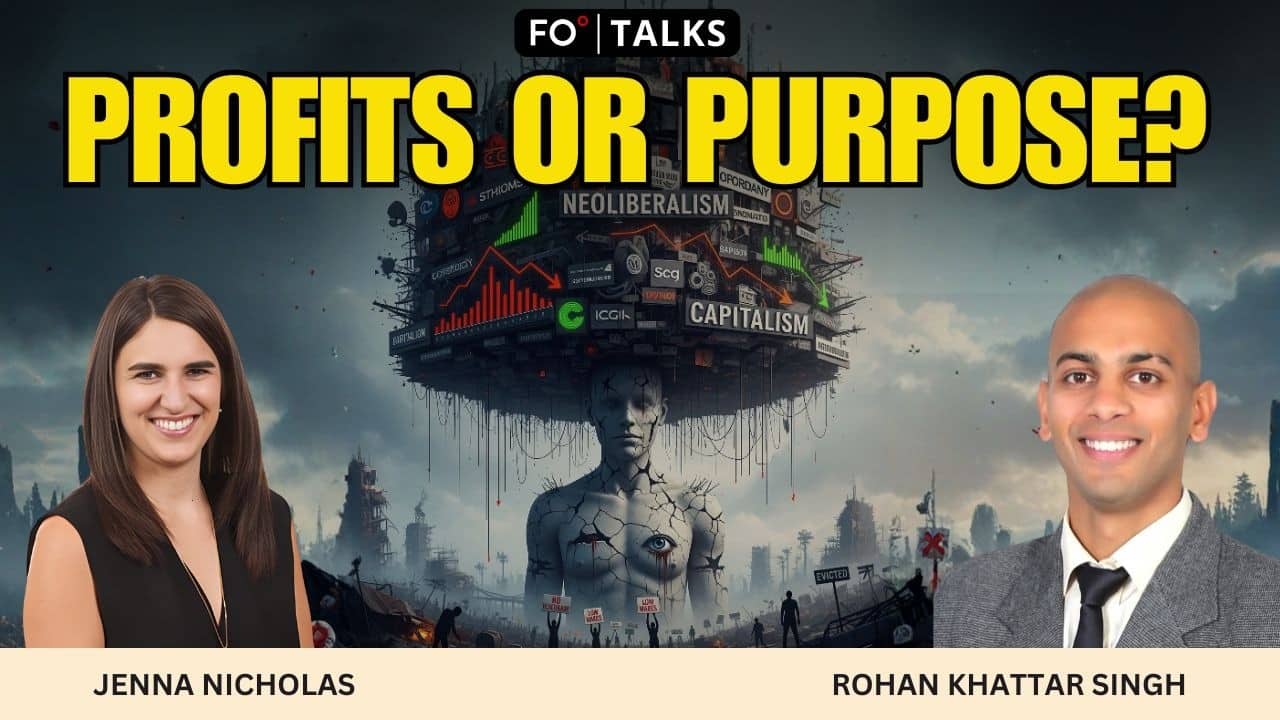

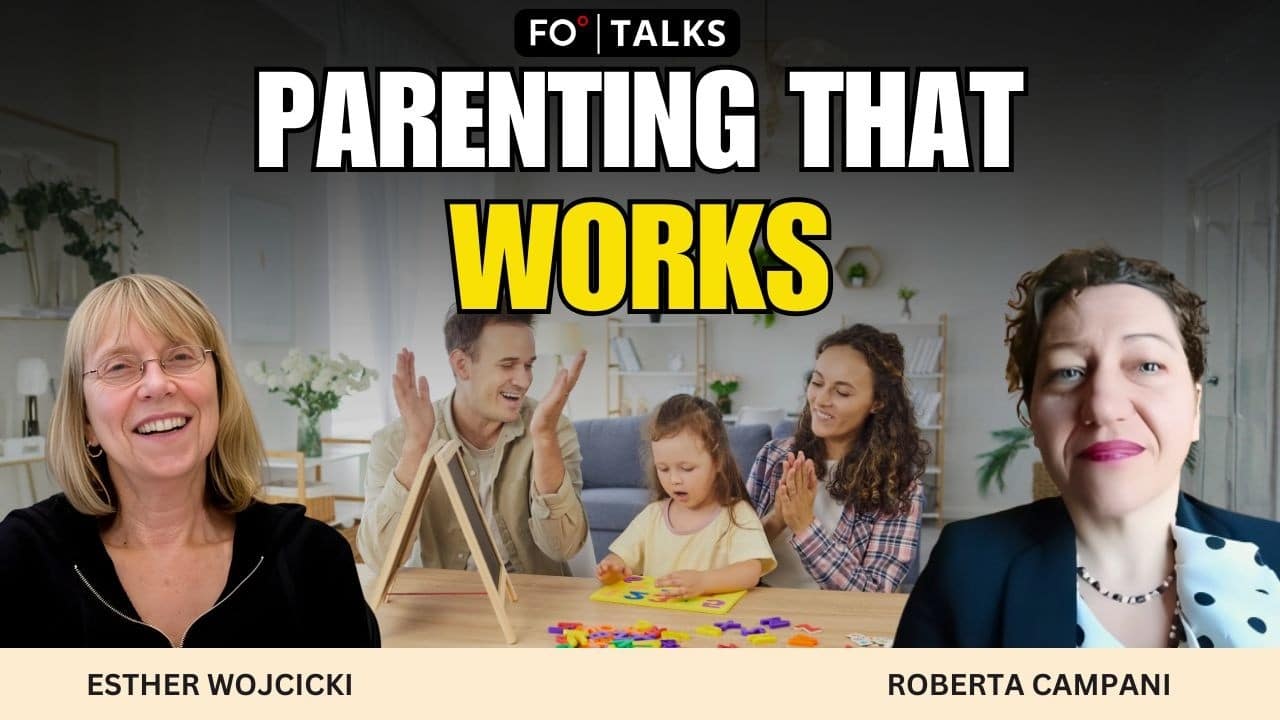

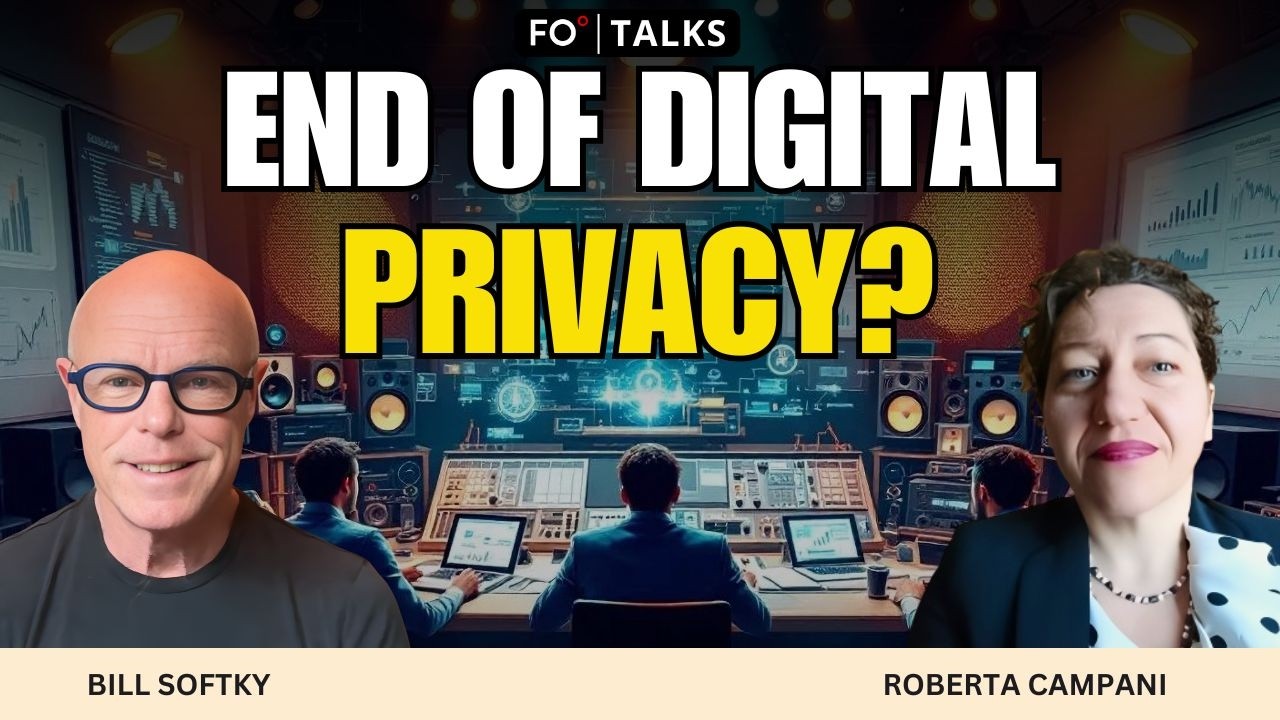

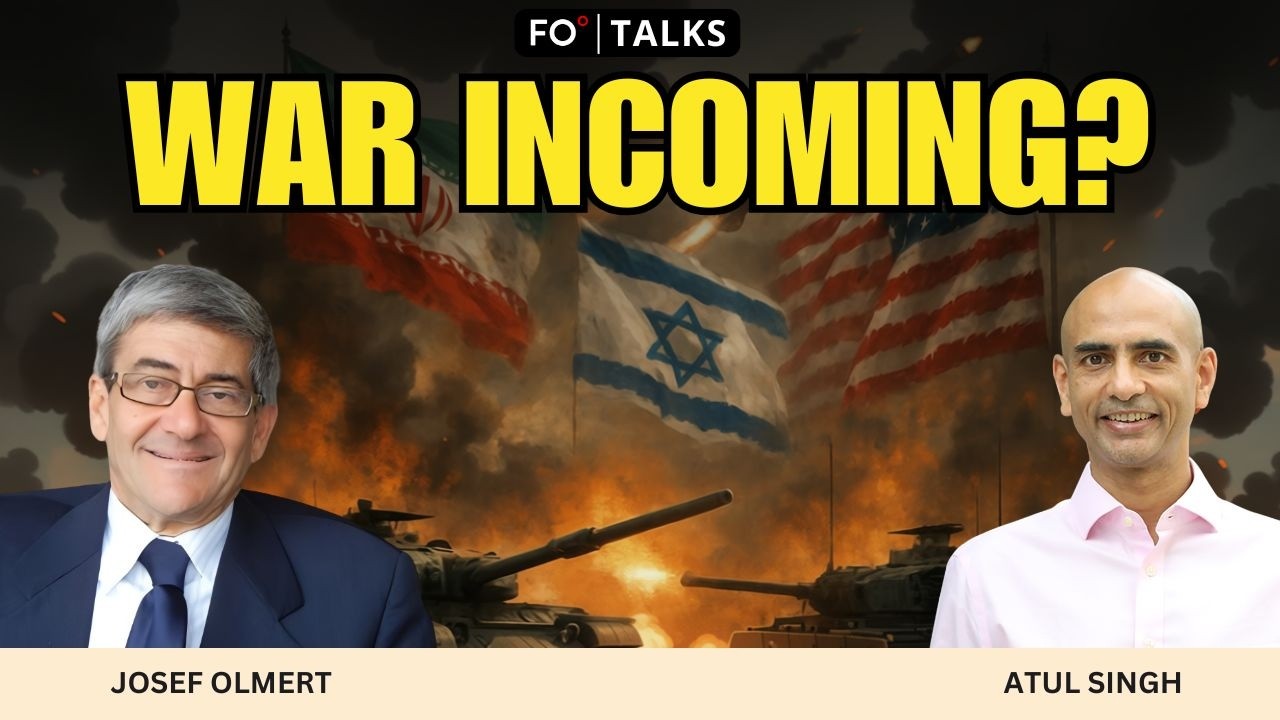



























Comment